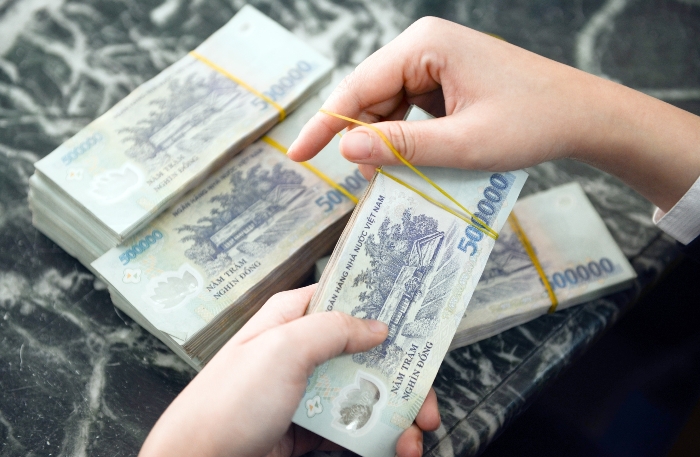SBV puts forward new regulation to do away with weak banks
| VND0 takeover or bankruptcy? | |
| SBV announces compulsory M&A for weak banks | |
| New banking decree fails to up foreign ownership |
 |
| SBV's proposal includes mechanisms for compulsory acquisition, bankruptcy, and special control (Illustration) |
Compulsory acquisition of banks with negative chartered capital
According to Doan Thai Son, head of SBV’s Legal Department, the most important content in the draft amendments to the Law on Credit Institutions is the compulsory acquisition of credit institutions placed under special control by SBV.
Accordingly, the weak credit institutions to be compulsorily acquired will have to satisfy the following criteria: 1) Not having a recovery plan, failing to secure approval for a recovery plan, or failing to recover by an approved recovery plan; 2) Failure to be merged, acquired or to entirely transfer their stakes to new shareholders; 3) Having a negative market value of chartered capital and provisions; 4) Having a certain credit institution or investor assigned by SBV to compulsorily acquire the weaker institution in question.
A certain credit institution or investor will be assigned to acquire the weak credit institution through an acquisition plan approved by SBV and the government.
SBV’s previous acquisition of three zero banks was compulsory, however, there was debate over the necessity of this step.
Besides, while requesting banks like VietinBank or Vietcombank to support weak credit institutions, SBV did not provide detailed guidance, so these banks may be afraid of the responsibility to solve the bad debts of weak credit institutions.
The draft also includes the legal rights of the assigned credit institutions. In particular, the acquirer can own the entire chartered capital of the weak credit institution, but the financial statements of the weak bank will not be added to the acquirers’ financial statement, and the acquirers can exclude the numbers of weak credit institutions from calculating its consolidated capital adequacy ratio.
After acquiring weak banks, besides the capital contribution that excludes the provision of investment devaluation, acquirers have the right to sell or issue new stocks of the weak banks for appropriate foreign investors.
Paving way for bankruptcy
The draft amendments to the Law on Credit Institutions includes many new regulations on special control mechanisms.
At present, due to the lack of appropriate regulations, SBV does not have the sufficient legal base to deal with credit institutions placed under special control if shareholders refuse to cooperate.
Thus, the draft specifies which credit institutions will be placed under special control, as well as the right to solve issues, and conditions to end the special control. Besides, the draft also mentions the government, the prime minister, and SBV’s rights in dealing with or restructuring credit institutions under special control.
Accordingly, the government will review and approve the bankruptcy and compulsory acquisition plans for credit institutions under special control as proposed by SBV.
Except for the bankruptcy plan, the PM will decide on the plans on recovery and changes in the legal status of commercial banks, cooperative banks, and financial institutions under special control, and offer special loans with preferential interest rate as proposed by SBV.
What the stars mean:
★ Poor ★ ★ Promising ★★★ Good ★★★★ Very good ★★★★★ Exceptional
Latest News
More News
- Cashless payments hit 28 times GDP in 2025 (February 04, 2026 | 18:09)
- SSIAM and DBJ launch Japan Vietnam Capital Fund (February 04, 2026 | 15:57)
- Banks target stronger profits, credit growth in 2026 (February 04, 2026 | 15:43)
- Vietnam on path to investment-grade rating (February 03, 2026 | 13:07)
- Consumer finance sector posts sharp profit growth (February 03, 2026 | 13:05)
- Insurance market building the next chapter of protection (February 02, 2026 | 11:16)
- NAB Innovation Centre underscores Vietnam’s appeal for tech investment (January 30, 2026 | 11:16)
- Vietnam strengthens public debt management with World Bank and IMF (January 30, 2026 | 11:00)
- Corporate bond market poised for stronger growth cycle (January 28, 2026 | 17:13)
- Vietnam's IPO market on recovery trajectory (January 28, 2026 | 17:04)
















 Mobile Version
Mobile Version